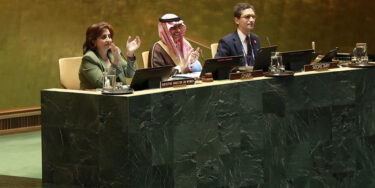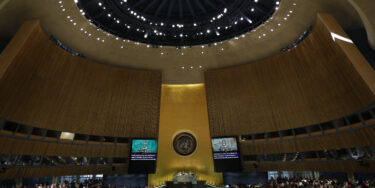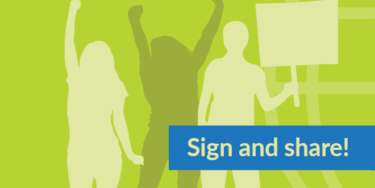The Human Rights Council must condemn attacks on abortion rights defenders
28.09.18
(Human Rights Bodies / Sexual and Reproductive Health and Rights)
In support of the September 28 “Global Day of Action for Access to Safe and Legal Abortion”, 223 civil society organizations from around the world, in members of the Observatory on the Universality of Rights (OURs), have endorsed this joint statement on abortion rights.
Through the Vienna Declaration and Programme of Action, States explicitly agreed to prioritize the realization of all women’s human rights. From Ireland, to Argentina, to South Korea, to Poland and to the Democratic Republic of Congo, women human rights defenders around the world are taking to the streets, to the courtrooms and to the ballot boxes to reclaim control over their own bodies and lives by demanding access to comprehensive abortion care. We unite in solidarity to recognize the shared roots of multiple and intersecting forms of discrimination in our struggles.
Although sexual and reproductive health and rights (SRHR) have been broadly recognized under international law, women human rights defenders (WHRDs) working on these rights often face harassment, discrimination, stigma, criminalization and physical violence.[1] As highlighted by UNGA resolution 68/181, the first ever resolution focusing on WHRDs, such abuses are violations of a person’s fundamental rights to life, liberty, psychological and physical integrity, privacy, freedom of opinion and expression, association and peaceful assembly.
Human rights violations perpetrated against abortion rights defenders and providers are part of a broader framework of backlash against sexual and reproductive rights aimed at instrumentalizing women’s bodies and lives[2]. Through restrictive and/or discriminatory laws and policies, some states fail to prevent or actively perpetuate these violations. In doing so, they institutionalize abortion stigma and create a hostile environment for abortion providers to carry out their work. Many persist, but others are harassed, or threatened until they cease providing such care.
This forces persons – including girls – with unwanted pregnancies to risk their lives, health and well-being by turning to unsafe abortion. It is the State’s obligation to repeal or eliminate laws, policies and practices that criminalize, obstruct or undermine individual’s or group’s access to sexual and reproductive health facilities, services, goods and information, including restrictive abortion laws.
States can no longer ignore the scientific evidence, the jurisprudence and the growing consensus among human rights bodies that abortion rights are human rights. The criminalization of abortion and the failure to ensure access to comprehensive abortion care has been found to be a violation of, inter alia, the rights to health, to bodily autonomy, freedom from discrimination, to the benefits of scientific progress, to privacy and to be free from torture and cruel, inhuman, or degrading treatment amongst other human rights.
In addition, impunity for attacks on abortion rights defenders, including abortion providers, is a clear violation of the principles set forth in the Declaration of Human Rights Defenders.
Therefore, today, on September 28, Global Day of Action for Access to Safe and Legal Abortion, we stand together as abortion rights defenders, allies and supporters from around the world and call on the Council to condemn attacks on abortion rights defenders and to urgently address the human rights violations arising from the denial of comprehensive abortion care through its resolutions, decisions, dialogues, reviews and debates.
Further, we demand that governments across the world respect, protect and fulfill the right of WHRDs working to ensure comprehensive abortion care and post-abortion care to do their work free from all forms of intimidation, harassment and violence from both State and non-State actors.
This statement was developed by the Sexual Rights Initiative, the Center for Reproductive Rights, Ipas, the Asia-Pacific Resource and Research Centre for Women, the Youth Coalition for Sexual Health and Rights, AWID and the Swedish Association for Sexuality and Education.
It was read aloud at the 39th Session of the Human Rights Council, on 24 September 2018, by Danielle Rosset on behalf of the signatory organizations, during the general debate under Agenda Item 8: Follow-up to and implementation of the Vienna Declaration and Programme of Action.



